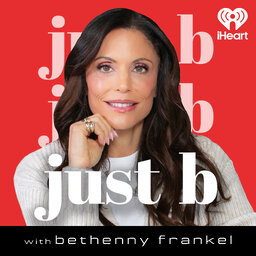Huma Abedin
On being bigger than heartbreak and working in the White House.
You may know Huma Abedin as the loyal political aide to Hillary Clinton and from her marriage to Congressmen Anthony Weiner that fell apart on national television; but Bethenny discovers so much more as only Bethenny can.
Plus, B's Rant: Being a bad tipper is the biggest turnoff ever. Don't let that be you. The tricks of tipping and how it gets you want! Bethenny explains.
Learn more about your ad-choices at https://www.iheartpodcastnetwork.com
 Just B with Bethenny Frankel
Just B with Bethenny Frankel


